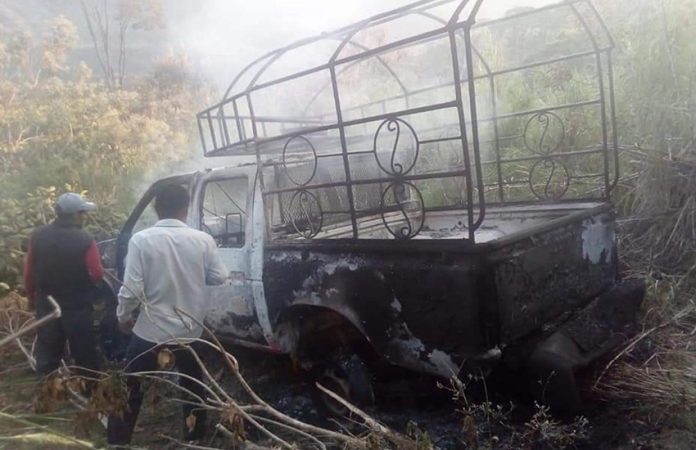A Canadian nongovernmental organization has raised a range of concerns about the electoral process in Mexico, including the prevalence of political violence and the funding of campaigns with ill-gotten money.
Six election experts from Canada and the United States who work with the Delian Project — which describes itself as an NGO dedicated to helping jurisdictions implement positive change in the democratic voting process through the application of technology — participated in a virtual press conference on Monday to share their views about the current electoral season in Mexico.
Armand Peschard-Sverdrup, an international election observer and senior associate of the Center for Strategic and International Studies, a Washington-based think tank, said three of the biggest concerns with regard to the period leading up to the June 6 elections are violence — more than 80 candidates and politicians have been killed since September, the infiltration of illicit money in candidates’ campaigns and tensions between the federal government and electoral authorities.
“The most concerning challenge in the Mexican election is the growing trend of political violence in Mexico, which has resulted in the murder of candidates and politicians … seeking reelection,” he said.
The Delian Project experts cited four reasons for the high levels of violence: the growing trend for criminal groups to “buy” or install candidates; the greater incursion of cartels into the electoral process, especially at the municipal and state levels; the absence of government control in certain parts of the country; and the weakening of political parties.
Peschard-Sverdrup said that even greater violence can be expected on election day, adding that winning candidates could be targeted in the period before they take office.
“This phenomenon [electoral violence] obviously occurs in countries where organized crime tries to influence the candidates” in order to protect their interests, he said.
“This type of violence has an impact on the foundations of democracy,” said Jean-Pierre Kingsley, an election observer and former chief of Elections Canada, the agency responsible for administering Canadian federal elections.
“And the people who perpetrate it are saying to Mexicans: ‘We don’t care about the electoral process, we don’t care about basic rights.’ It’s concerning because there are murders and physical intimidation. One candidate was kidnapped in broad daylight so that she wouldn’t participate in the [electoral] process; it’s unacceptable.”
To reduce the illicit funding of campaigns, Peschard-Sverdrup proposed the strengthening of authorities’ auditing of spending by political parties and candidates. He said that parties and candidates have made it more difficult for the National Electoral Institute (INE) to effectively audit their spending by using “irregular financing strategies such as the use of cash, triangulation [of resources], the simulation of services and false invoicing.”
Ann Ravel, former chair of the United States Federal Election Commission, said that auditing of campaign resources is fundamental in order to guarantee a level playing field for candidates and parties.
With regard to tensions between the government and the INE — President López Obrador lashed out at the institute for disqualifying two ruling party candidates for governor after they didn’t report their pre-campaign expenses, Kingsley said the strained relationship could cause some citizens to question the legitimacy of the elections. It could also have an impact on voter turnout, he said.
The Delian Project experts did identify some positives in Mexico’s electoral process, including the high participation of women and the planned implementation of health measures to prevent the spread of the coronavirus.
“The [Delian Project] delegation recognizes Mexico as one of the most progressive nations in terms of legislation to increase the participation of women in electoral positions,” said Laura Villalba, a senior principal consultant for the political consulting firm Politics and Policy, LLC, who served as an observer in Puebla’s 2019 election.
Richard W. Soudriette, founding president of the International Foundation for Election Systems, which has collaborated with Mexico’s electoral agencies — the INE and its predecessor, the Federal Electoral Institute — on election policy and reform since the 1990s, said the Covid-19 health protocols designed to keep citizens safe during the election are “amazing.”
“… It seems that it will be a very healthy election,” he said.
The delegation from the Delian Project arrived in Mexico April 19 and has met with representatives of the electoral institute, several other agencies and political parties. But requests to meet with the federal government and the ruling Morena party were ignored.
It sought meetings with Morena president Mario Delgado, Senator Ricardo Monreal and Foreign Affairs Minister Marcelo Ebrard but received no reply.
Source: El Economista (sp), Reforma (sp)
